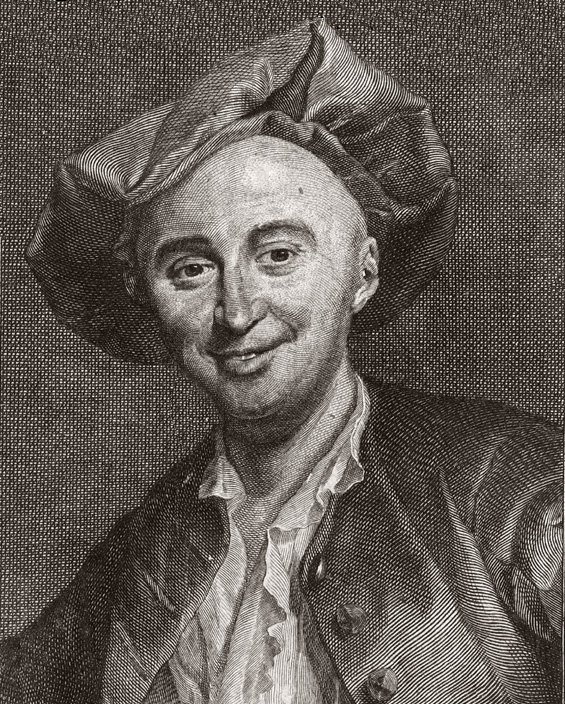
Julien Offray de La Mettrie
Julien Offray de La Mettrie (French: [ɔfʁɛ də la metʁi]; November 23, 1709[1] – November 11, 1751) was a French physician and philosopher, and one of the earliest of the French materialists of the Enlightenment. He is best known for his 1747 work L'homme machine (Man a Machine).[2]
Julien Offray de La Mettrie
23 November 1709
La Mettrie is most remembered for taking the position that humans are complex animals and no more have souls than other animals do. He considered that the mind is part of the body and that life should be lived so as to produce pleasure (hedonism). His views were so controversial that he had to flee France and settle in Berlin.
Early life[edit]
La Mettrie was born at Saint-Malo in Brittany on November 23, 1709, and was the son of a prosperous textile merchant. His initial schooling took place in the colleges of Coutances and Caen. After attending the Collège du Plessis in Paris, he seemed to have acquired a vocational interest in becoming a clergyman, but after studying theology in the Jansenist schools for some years, his interests turned away from the Church. In 1725, La Mettrie entered the College d'Harcourt to study philosophy and natural science, probably graduating around 1728. At this time, D'Harcourt was pioneering the teaching of Cartesianism in France.[3] In 1734, he went on to study under Hermann Boerhaave, a renowned physician who, similarly, had originally intended on becoming a clergyman. It was under Boerhaave that La Mettrie was influenced to try to bring changes to medical education in France.[4]